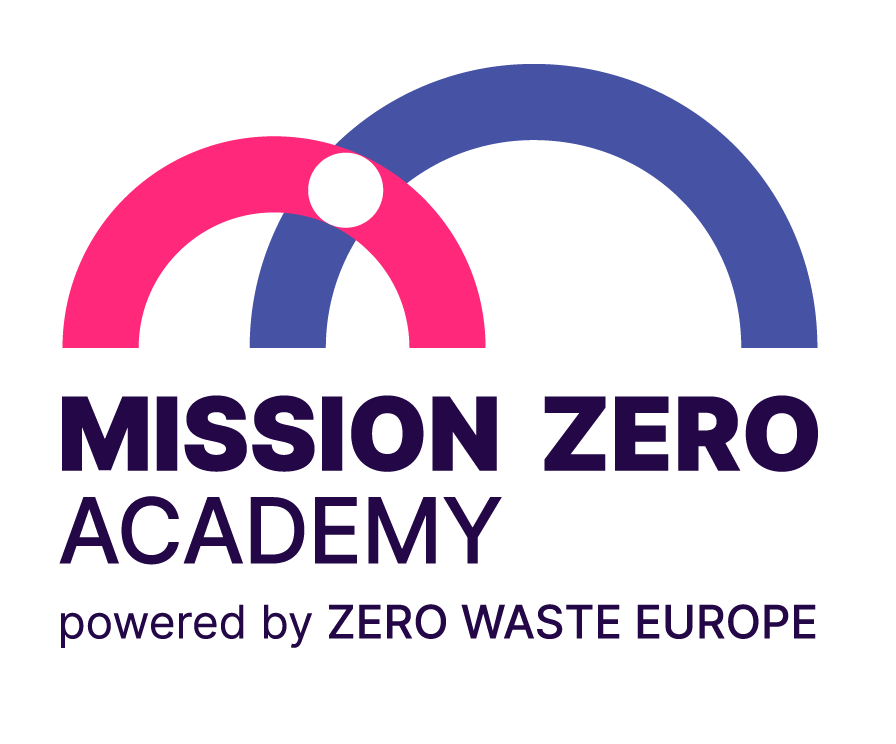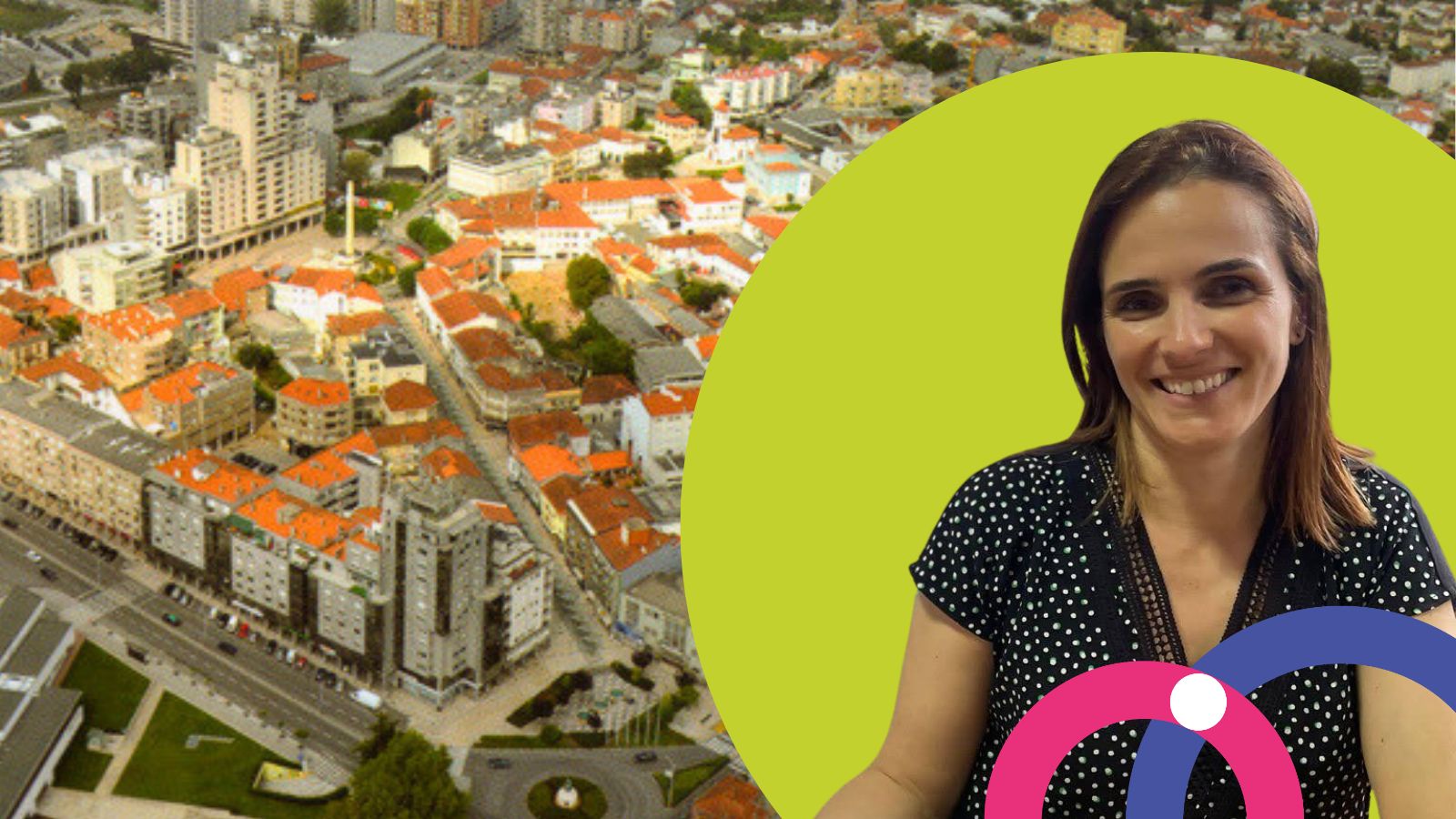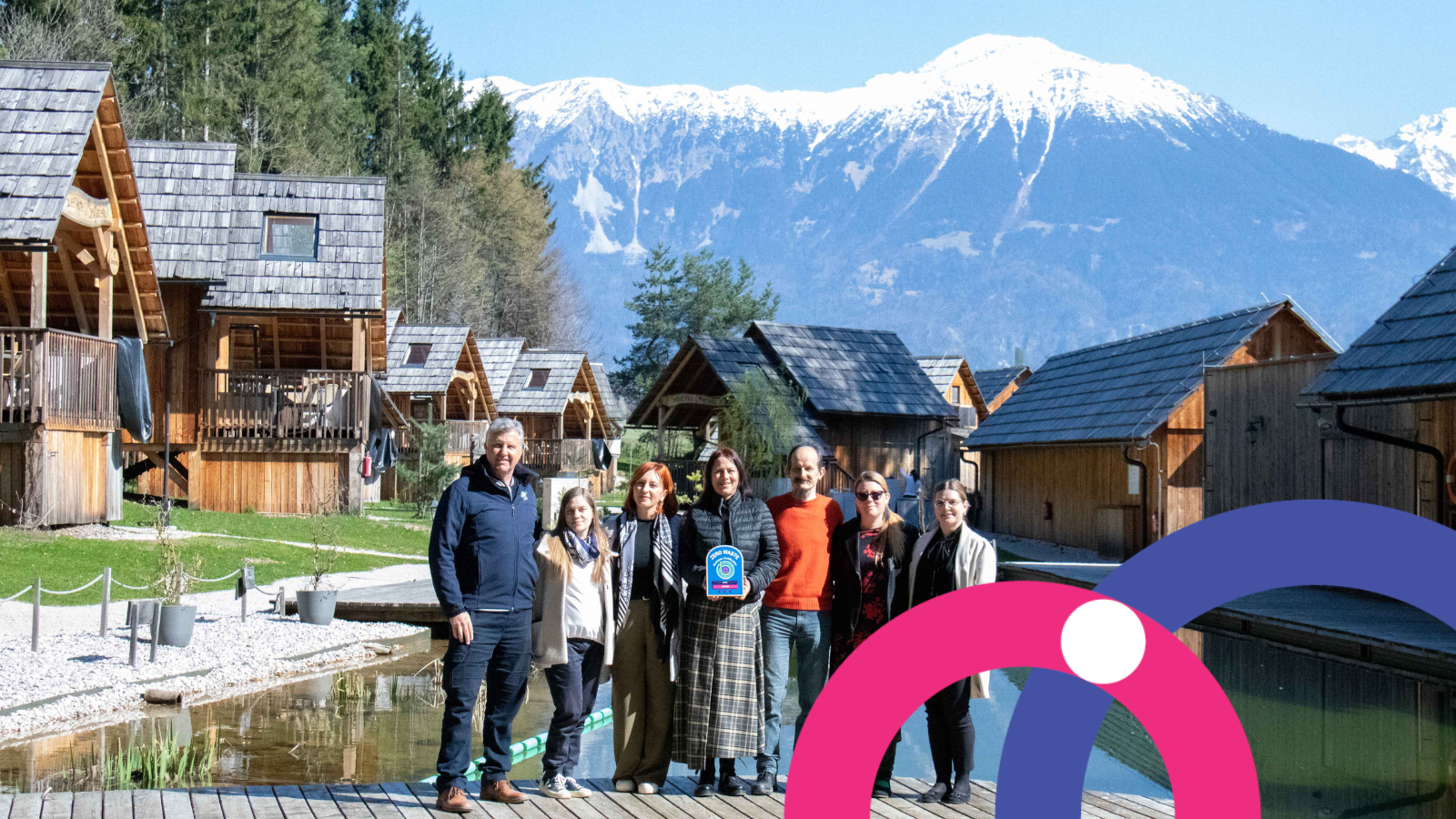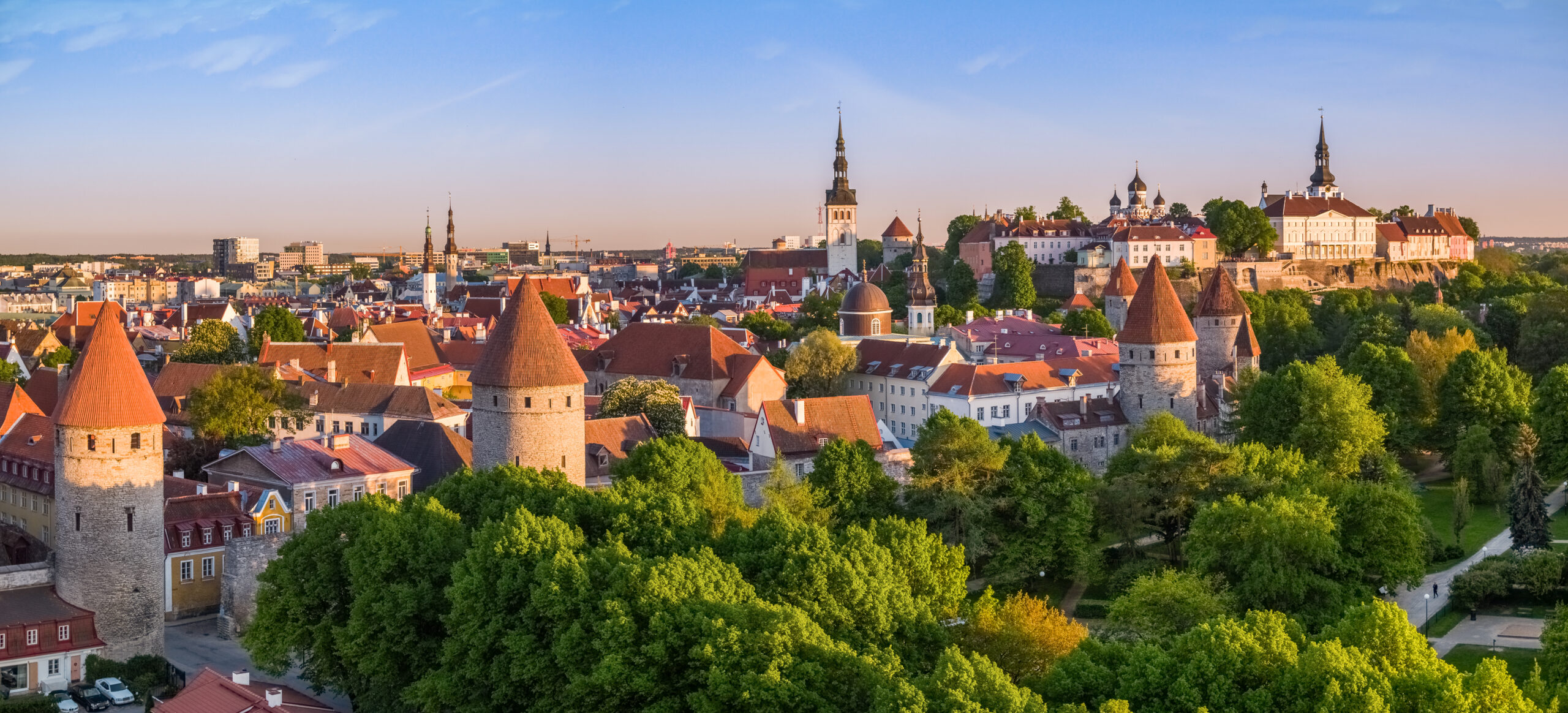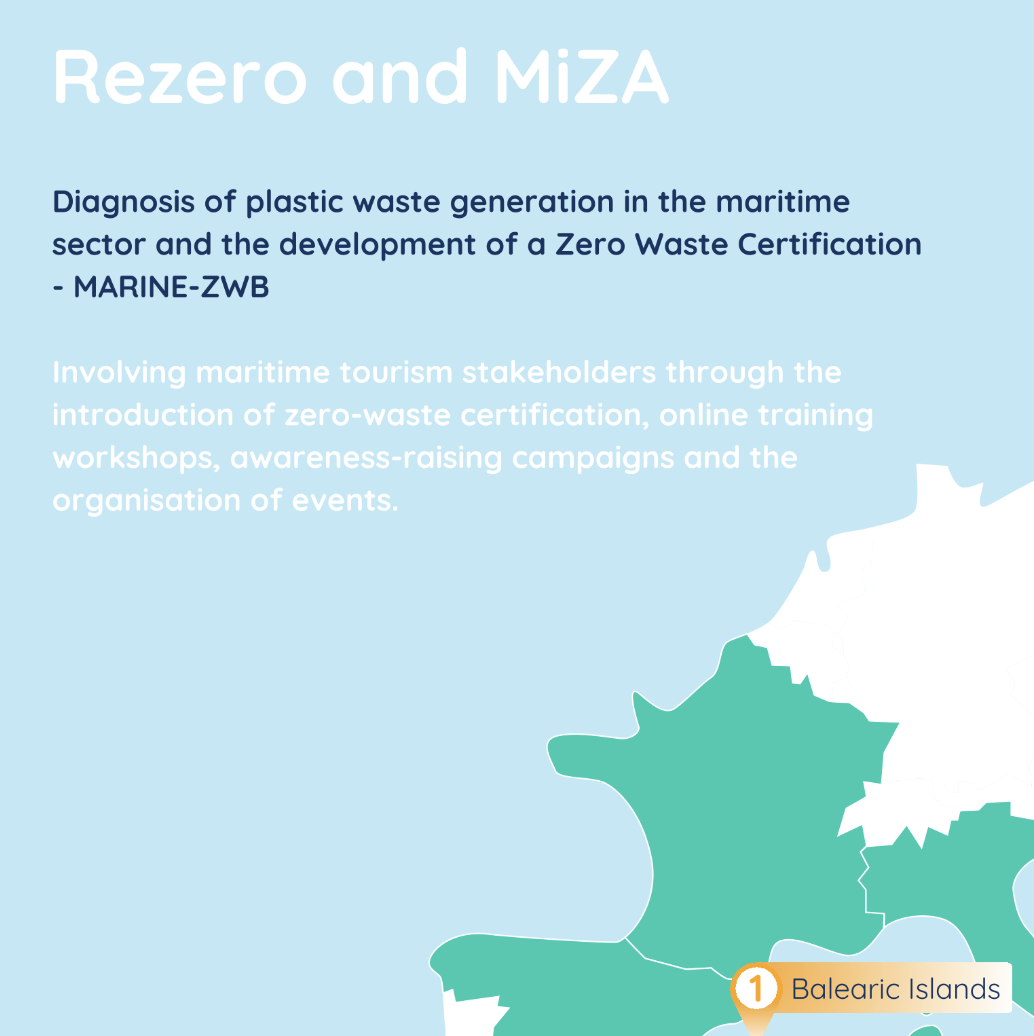In May 2024, Zero Waste Europe and Mission Zero Academy visited São João da Madeira – one of the first Portuguese cities to be a candidate for the Zero Waste Cities certification. In this short article we will look at the challenges and achievements of the municipality in its efforts to slash waste generation.
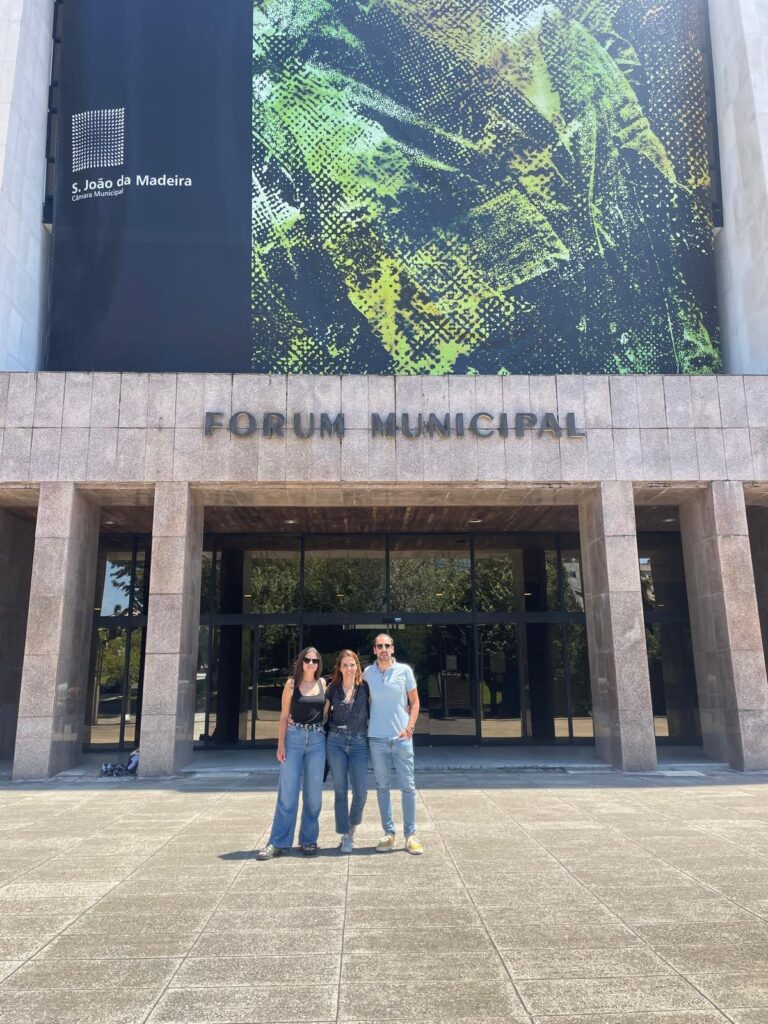
A small Portuguese industrial town making zero waste a priority?
São João da Madeira is a quiet Portuguese town with 22,162 inhabitants, located 30 km south of Porto. The city is especially known for its industrial heritage, as it was one of the largest industrial centres in the country in the 19th century – and is still famous today as a footwear manufacturing centre and one of the world’s leading producers of felt hats. However, São João da Madeira aspires to more than just industrial fame….and is now aiming to transform into a zero-waste pioneer.
In 2022, the city has pledged to become one of the first certified zero waste cities in Portugal, setting ambitious zero waste goals for itself by 2030:
- limit overall waste production to 410 kg per person annually,
- reduce residual waste to 100 kg per person per year,
- and increase the recyclables collection rate to 75%.
To achieve such a feat, the municipal team decided to introduce a door-to-door collection for packaging and bio-waste covering a big part of its territory as well as a PAYT system, based on the bonus-penalty scheme for organics and mixed waste respectively, by means of a a sophisticated user identification system. The densily populated areas with multi-storey buildings will be served by underground containers, where biowaste and mixed waste will have restricted access, whereas recyclables will be always open to enhance return rate of valuable materials. Sometimes all it takes is one committed mind to drive change
To truly understand the city’s commitment, you have to hear from Vera Neves – Head of the Environment Unit of the city, and one of the main architects of the new waste management strategy. Talking to Vera, it soon became obvious that as difficult as it may seem to talk about going “zero waste” in a country where almost 50% of all waste produced still goes to landfill and a bit less than 20% is incinerated, she was determined to convince the municipality that such a shift was possible: “I saw the MiZA “Zero Waste City” certification as a great challenge for our municipality. In 2022, we had already defined a zero waste strategy. But the certification gave us the extra push we needed to move things further and faster” she confesses.
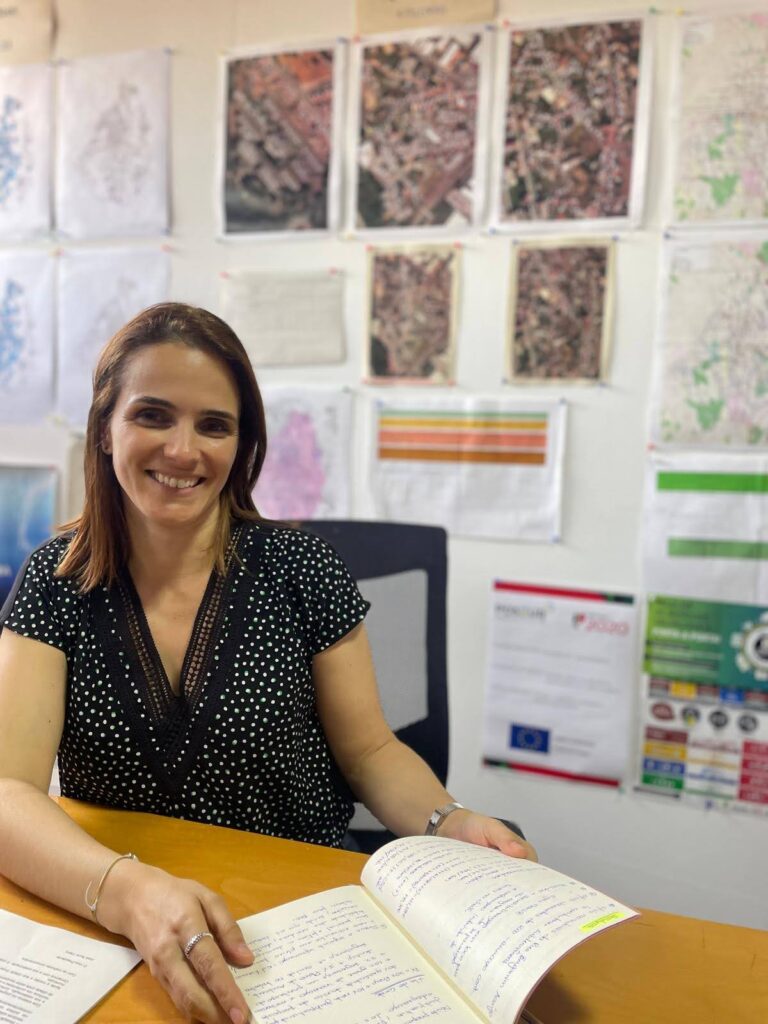
A three-stage revolution in local waste management
Behind the ambitious 2030 targets lies a progressive strategy, which began some years ago, to slowly but surely revolutionise waste management practices across the entire city:
- Back in 2018, a door-to-door (D-t-D) collection pilot was started for 4 waste fractions (glass, paper and cardboard, light packaging and mixed waste) in a few districts with single-family households. The model coexists in the city with other systems for more dense areas. In the central and more densely populated areas, waste is collected using an underground waste system in “islands” on public spaces.
- In October 2022, ahead of the EU bio-waste sorting obligation, the city introduced separate collection of the kitchen waste fraction in neighbourhoods already covered by door-to-door collection. The containers distributed to households have been fitted with a smart chip and are automatically read by a scanner, placed at the back of the collection truck, before being emptied, enabling individual waste production data to be collected and sorting behaviour to be better tracked
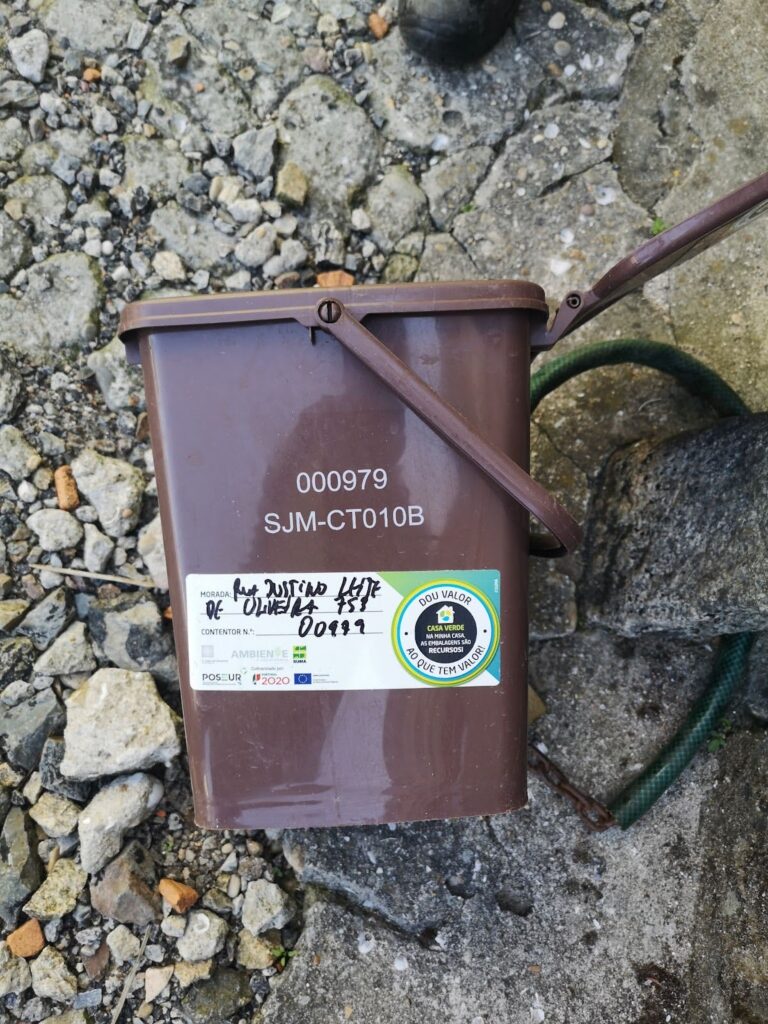
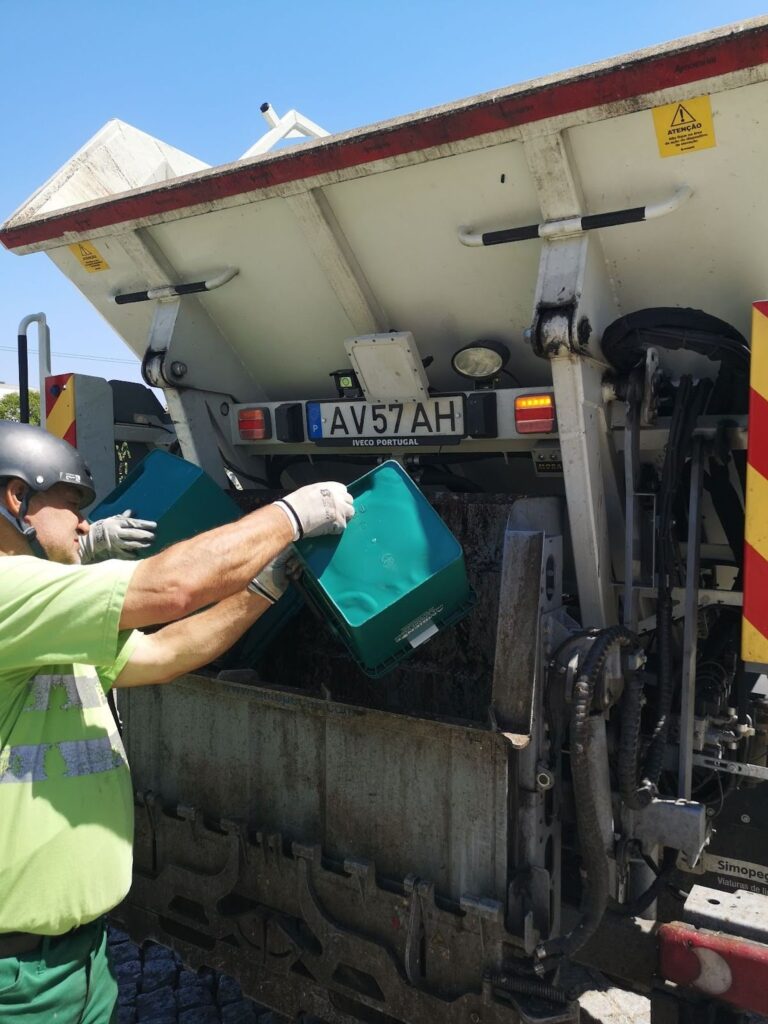
The implementation of these changes have proved crucial, resulting in a significant reduction of almost 20% in residual waste over the period 2018-2023. Residual waste has fallen from 446 kg/capita/year to 352 kg/capita/year. Notably, with these results, the city is already meeting the national target of reducing residual waste production by 2030, as set out in the national strategic plan for municipal waste (PERSU – Plano Estratégico para os Resíduos Urbanos). Even more noteworthy, the introduction of separate bio-waste collection in October 2022 alone has led to a remarkable 7% reduction in residual waste in the space of a year – the sharpest drop on record. Separate collection rates for all fractions have also seen substantial increases, with a 59% rise since the introduction of D-t-D collection in 2018.
But there is more to this – as D-t-D has proven to be very cost effective. Vera explains, “Yes, initially door-to-door costs more, but the costs have been neutralised, and the revenue generated by the reduction in the residual fraction and the increase in separate collection has enabled us to fully cover our initial costs. Today, it costs us 0 euros“.
- However, to reach its target of 100 kg/capita/year of residual waste by 2030 (which represents a reduction of almost 70% on current results), the city must intensify its efforts to maintain a steady reduction in residual waste production of 12% each year. And to do this, Vera and her team are about to launch the third stage of their “waste management revolution”. The aim is to extend door-to-door collection for the 5 waste fractions to all neighbourhoods with single-family households and to 30% of buildings with a maximum of 4 floors. This system will be complemented by the modernisation of the bring scheme in central districts, with the installation of new underground waste bins with controlled access allowing user identification and tracking of waste production – in anticipation of the introduction of a “Pay As You Throw” system.
Outsourcing waste collection became, however, rather challenging. Last year, a tender was launched for this purpose, but unfortunately, no bids were received within the available budget. For months, Vera has been reassessing the routes and collection points needed for expanding the door-to-door system, and estimating the human resources necessary to accomplish collection on the whole municipal area. Her goal is to accurately budget and plan these services before reissuing the tender. These setbacks highlight the difficulties encountered by the few pioneering municipalities attempting to change conventional waste management practices.
Transforming waste into opportunities
One of the major milestones in São Joao de Madeira’s transition to zero waste is the project for a new ecocenter (Ecocentro), due to open in 2030 – which represents a significant leap forward in the municipality’s waste management infrastructure. “ The small existing Ecocentro is struggling to meet the municipality’s needs. Especially as more and more bio-waste is collected separately” explains Vera.
A design competition was launched last year, involving several architectural studios, with a view to creating a new centre that will perform multiple functions essential to ensure high quality waste management and support the creation of a local reuse and repair economy . One project emerged as the winner and has been selected. The new Ecocentro will feature a reuse centre for items like furniture, household appliances, and bicycles, providing space for repair and exhibitions. In addition, the facility will include a transfer station with unloading points for the different fractions of waste coming from separate collection, with restricted public access. Finally, there will be a designated area for the disposal of different waste fractions accessible to the public, as well as a covered section for hazardous waste deposits. Looking ahead, the Ecocentro plans to expand its services to become a deposition centre for bulk items, currently collected on demand on designated days ( Thursdays). Future developments may also include broader community access for waste drop-offs.
In addition to this infrastructure, the municipality is actively promoting waste prevention initiatives in schools and at events. Schools have recently received reusable water bottles and water fountains have been installed, eliminating the need to sell single-use plastic bottles on most of the public school grounds.
In addition, since 2022, a ban on the use of single-use packaging for take-away food and drink has been implemented in the event “Cidade no jardim” which brings together more than 1,000 participants every year, which is now mandating the use of reusable alternatives and the proper segregation of waste on site. Thanks to this initiative, more than 60,000 disposable plastic cups and bottles were avoided in the last edition. In addition to combating single-use plastic, the use of paper towels was also eliminated, thus avoiding a consumption of around 22,000 units. “Everyone told me I was crazy when I first came up with the idea – but now that we’ve done it, everyone is happy’’ confessed Vera.
The work done by São João da Madeira’s team demonstrates that even with systemic failures in the current waste collection and treatment system, it is possible to implement measures to trigger a broader paradigm shift. Becoming a Zero Waste City is not a quick process; it requires thorough planning over many years and the continuous commitment of multiple stakeholders, including local politicians, private companies, public institutions, schools, the social sector, and citizens. However, the benefits of implementing such a project outweigh the challenges. A zero-waste city not only adds value and improves the well-being of its residents by prioritising environmental services, but also attracts attention and recognition beyond its borders as it demonstrates that waste reduction can be economically profitable.
Ready to make your city zero waste? Join the Zero Waste Cities programme today for expert guidance and support. Contact us.

